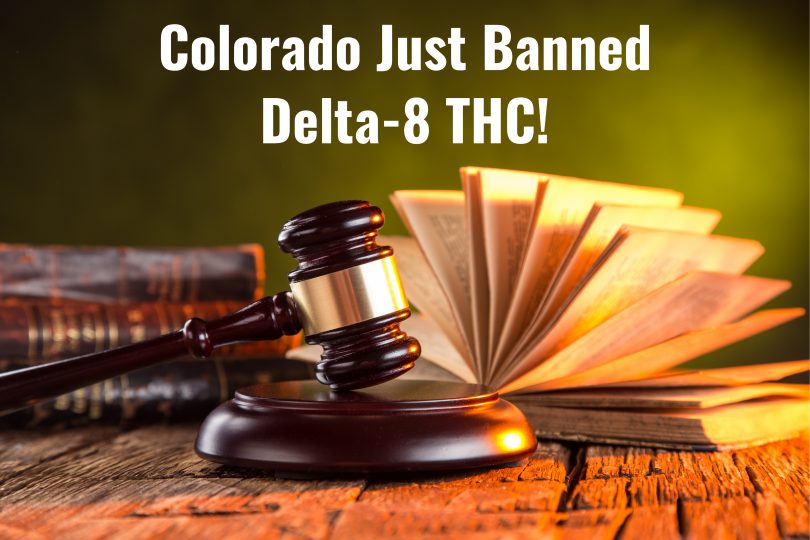In what can only be seen as a weird turn of events, Colorado, one of the first states to adopt recreational cannabis legalization, has officially banned Delta-8 THC and Delta 10 THC. For a state that allows recreational use, it’s a strange move to illegalize a naturally occurring part of the plant. Let’s take a look at why this is happening.
Delta-8 THC is the newer version of THC to hit the markets, providing users with a clear-headed high, and causing less anxiety and paranoia. Plus, the psychoactive effect is less than delta-9, which is great for medical users who want less of a high. The phenomenon is growing, and you can be a part of it by checking out our awesome Delta-8 THC deals, and ordering this new-age form of THC today.
What is delta-8 THC?
In order to understand the politics around why a state like Colorado banned delta-8 THC, it’s important to know what is being dealt with. Delta-8 THC is a naturally occurring isomer of delta-9 THC, the more well-known THC associated with cannabis plants. Delta-9 THC itself does not appear in cannabis flowers in high amounts, but, rather its precursor THCA. When THCA has heat applied, or sits long enough for the sun and time to slowly take effect, THCA looses a carboxyl group (COOH) in a process called decarboxylation, to go from this chemical structure: (C22H30O4) to this chemical structure, (C₂₁H₃₀O₂), the structure for all delta THCs.
The process is only half over at this point. When delta-9 THC comes into contact with oxygen, it loses electrons in a process called oxidation, which ever-so-slightly modifies the compound by changing where a double carbon bond takes place. In delta-9 THC it’s on the 9th carbon atom in the chain, for delta-8 it’s on the 8th, though the actual chemical structure remains the same. The new molecule created, delta-8 THC, is actually way more stable than delta-9, and therefore has a longer shelf-life.
SALE: Delta 8 THC vape carts for only $9/cart!
Subscribe to the Delta 8 Weekly newsletter for the best deals on Delta-8 THC

Delta-9 oxidizes to form delta-8 at an extremely low rate, so though it’s naturally occurring, it’s not naturally occurring in high enough amounts to create products. For this reason, human processing help is required in order to produce enough delta-8 for products. This creates a bit of a quandary as to whether it should be considered ‘naturally-occurring’ or ‘synthetic’. A point which makes a big difference, as all synthetic THCs are automatically illegal schedule I drugs as per DEA Controlled Substance Code Number 7370, as synthetics don’t fit under the definition of hemp. We’ll get to why this is important soon.
Delta-8 and delta-9 THCs are known for many of the same medical benefits, like decreasing nausea and vomiting, while stimulating appetite, anti-inflammatory effects, antimicrobial abilities, and usefulness with neurodegenerative and spastic disorders. It’s also good for anxiety, which is actually where it stands out over delta-9. Delta-9 THC can help some people with anxiety, but it is also known to cause anxiety and paranoia in others.
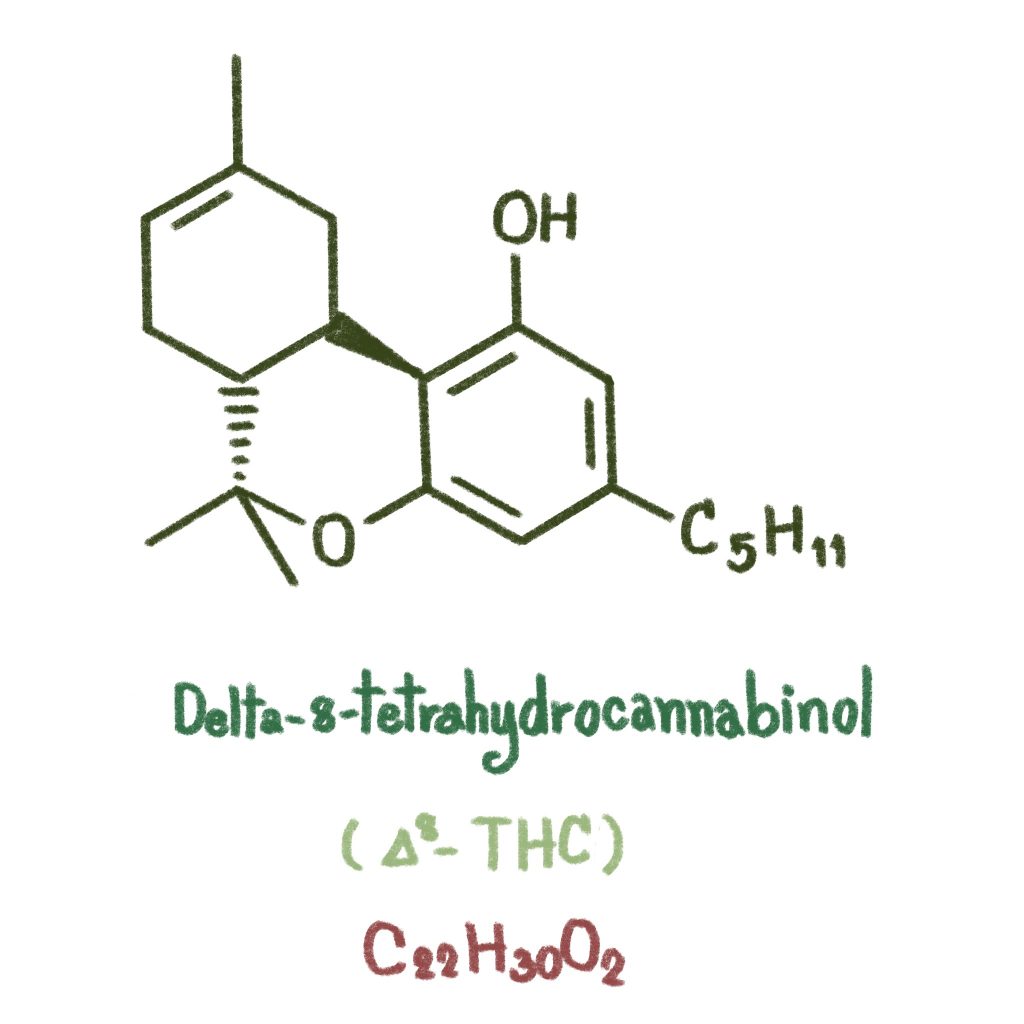
Delta-8 doesn’t come with this issue, which is a major benefit over delta-9. It’s associated with less psychoactive effect, making it preferable to medical patients who want a medication that won’t put them out of their heads. Delta-8 is also useful in that the high is does produce is more clearheaded than a standard delta-9 high, with more energy for the user, and less of a couch-locked feel.
Why are we talking about delta-8 THC at all?
Good question. THC has been a schedule I compound for quite some time, and so are all analogues. When the US Farm Bill came out in 2018, it legalized hemp for cultivation and production of products, specifically not including analogues. The stipulation is that plants can’t have over .3% THC, but that the THC is legal in that amount for those plants. This created a buzz that THC could legally be sold through a loophole, since delta-8 can be sourced from any delta-9, even delta-9 coming from low-THC hemp plants.
The story might have ended there, but then the DEA put out its Interim Final Rule in 2020, to help specify some unclear points. One thing it backed up, is that all synthetics are, in fact, illegal. What it didn’t do, is clarify if human processing help, constitutes ‘synthetic’, or if its ability to appear in nature on its own, allows it to remain definitionally naturally-occurring. The 2021 USDA Final Rule, which updated the DEA Interim Final Rule, also did not clarify this point, leaving delta-8 THC in a legal gray area of conflicting definitions.
The other thing the Interim Final Rule and Final Rule clarified, is that it’s not just that the plants being sourced must have no more than .3% THC, but so must all processing stages for a product, and the final product itself. Whether a finished product is high in delta-8 form or delta-9 form makes little difference, as the Controlled Substance Analogue Act of 1986, states that a chemical analogue of a controlled substance: “shall, to the extent intended for human consumption, be treated, for the purposes of any Federal law as a controlled substance in schedule I.”
Have you ever tried Delta 10 THC?
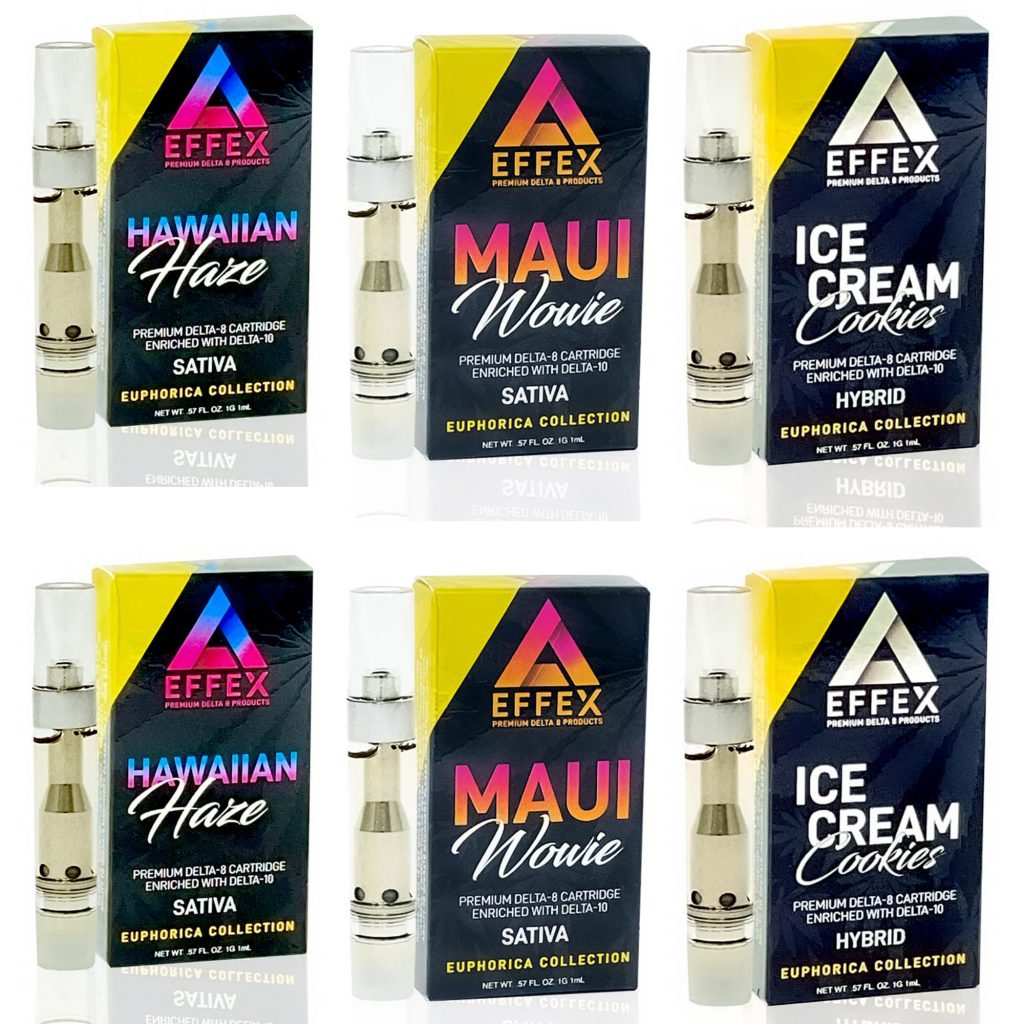
(As a quick aside, delta-8 THC is both an isomer and an analogue of delta-9. It’s an isomer because the chemical structure is the same, but the configuration of atoms is slightly different. And it’s an analogue because its structurally and functionally similar to delta-9).
Since the 1970 Controlled Substances act makes delta-9 a controlled substance, the definition encompasses delta-8 – as an analogue – as well, meaning neither can be above .3% in a finished product. This doesn’t mean that delta-8 can’t be in products, but it does mean that federally speaking, no more than .3% is allowed.
What you might notice, is that while different locations like Vermont, and now Colorado, have banned delta-8 THC, the federal government hasn’t done much about it. Perhaps this indicates it already knows it would be a losing battle. So, legal or not, delta-8 has been getting a pass federally. However, on the state level, it’s not enjoying the same ability.
Colorado banned delta-8 THC
Colorado has been a massive pioneer in US cannabis legalization. The state legalized recreational cannabis back in 2012 with ballot measure Amendment 64, becoming the first state (tied with Washington) to do so. In a simple yes/no vote for legalizing up to an ounce for those 21+, approximately 55% of the voting population voted yes, and about 44% voted no. So, it suffices to say that Colorado is perfectly cool with cannabis.
Now, almost ten years after this legalization, Colorado just banned the naturally-occurring delta-8 THC…so, why? Well, it goes back to that definition of ‘synthetic’. Colorado didn’t specifically ban delta-8 THC, it banned hemp-derived isomers from being in any foods, drinks, or dietary/supplemental products, as can be seen here.
But it goes a bit further than that, because an isomer in and of itself isn’t necessarily an issue. Colorado’s health department then stated, “chemically modifying or converting any naturally occurring cannabinoids from industrial hemp is non-compliant with the statutory definition of ‘industrial hemp product’.” In other words, Colorado backed up the definition of synthetic, as human help with converting or modifying. This rule came out because of an uncertainly as to how the isomer/analogue is actually made.
The agency went on to say, “Insufficient evidence exists to determine whether or not any toxic or otherwise harmful substances are produced during these reactions and may remain in the regulated industrial hemp products ingested or applied/used by consumers… Therefore, these tetrahydrocannabinol isomers are not allowed in food, dietary supplements or cosmetics.” The new update illegalizes both the production and sale of delta-8 THC. It should be noted, that this also rules out delta-10 THC, although there is less confusion on delta-10, since it was never naturally occurring, and therefore could never have fit under the definition of hemp.
SALE: Delta 8 THC vape carts for only $9/cart!
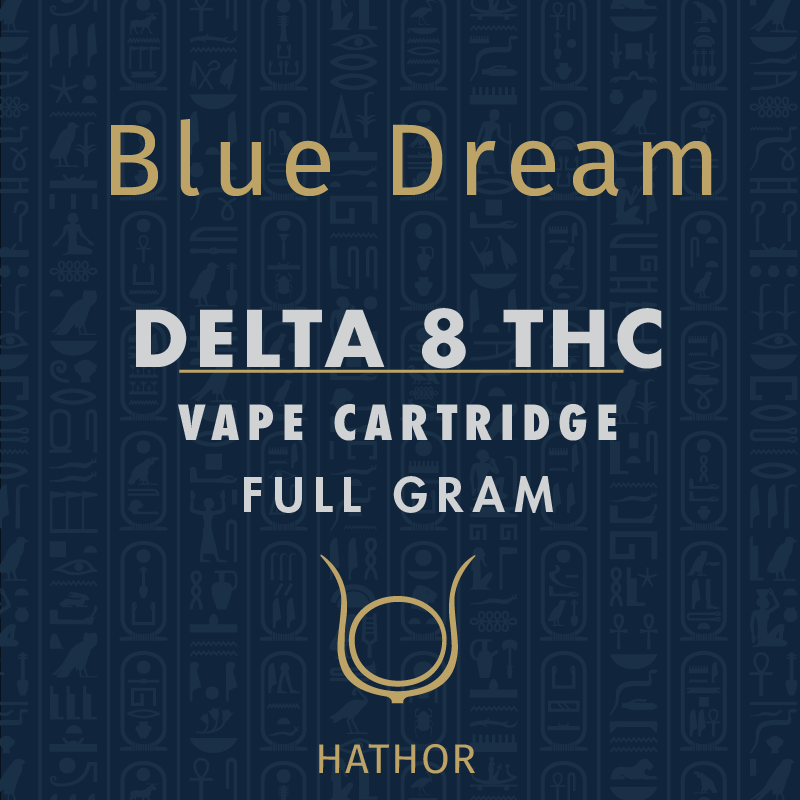
This story is important, because what the health department is saying, is that, it doesn’t matter if it can occur naturally, if processing is done in ways that can’t be verified as safe, then the product can’t be sold. I’ve said this before, and I’ll say it again, this problem is better fixed by setting up a regulation standard to create safe delta-8 products, than to ban them, especially considering that even the US federal government hasn’t seen fit to officially do so. This idea of whether manufacturing over extracting constitutes a break with the Farm Bill, is currently being challenged in court by the Hemp Industries Association, and a hemp manufacture from South Carolina.
Conclusion
So why would Colorado, a legalized state, want to get Delta-8 THC banned? Safety issues? Sure, there are safety issues, as processing methods can often involve harsh chemicals. But if legislators wanted to be useful, they’d just regulate processing techniques, rather than outlawing the product. And let’s be honest, with a massive opioid epidemic that started with the government allowing heavy opiates to be on the market, and prescribed massively by doctors, it’s really hard to imagine that this is about protecting consumer health. Seems more likely its about protecting corporate industry. And that could be exactly what’s going on here. My bet is that large pharmaceutical companies will be putting out delta-8 products very soon.
NEW: DELTA 10 TINCTURE
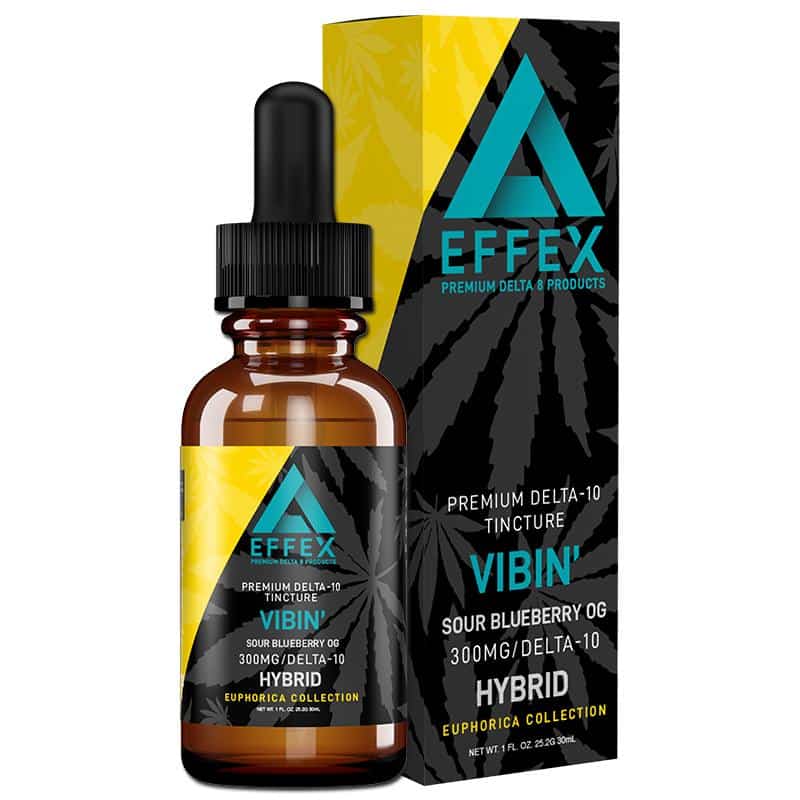
Welcome! You’ve reached CBDtesters.co, the #1 location for the most up-to-date cannabis-related news worldwide. Give us a look every day to stay on top of the ever-changing world of legal cannabis, and sign up to receive our newsletter so you’re always in the know.
Resources
Delta-8 THC Exploits Fantastic Legal Loophole
Delta-8 THC Delivery Methods: Best Way to Get It in You
Biggest US Drug Loopholes: Delta-8 THC and Magic Mushrooms The Delta 8 Weekly Newsletter (All you need to know about Delta 8 thc), the Best Delta 8 THC Deals and the Best Delta-10 THC deals
DIY: How to Make Delta-8 THC at Home
The Legality of Delta-10 THC – Where It Stands
Delta-8 THC and Athletics – Why the Two Go Together
Disclaimer: Hi, I’m a researcher and writer. I’m not a doctor, lawyer, or businessperson. All information in my articles is sourced and referenced, and all opinions stated are mine. I am not giving anyone advise, and though I am more than happy to discuss topics, should someone have a further question or concern, they should seek guidance from a relevant professional.


